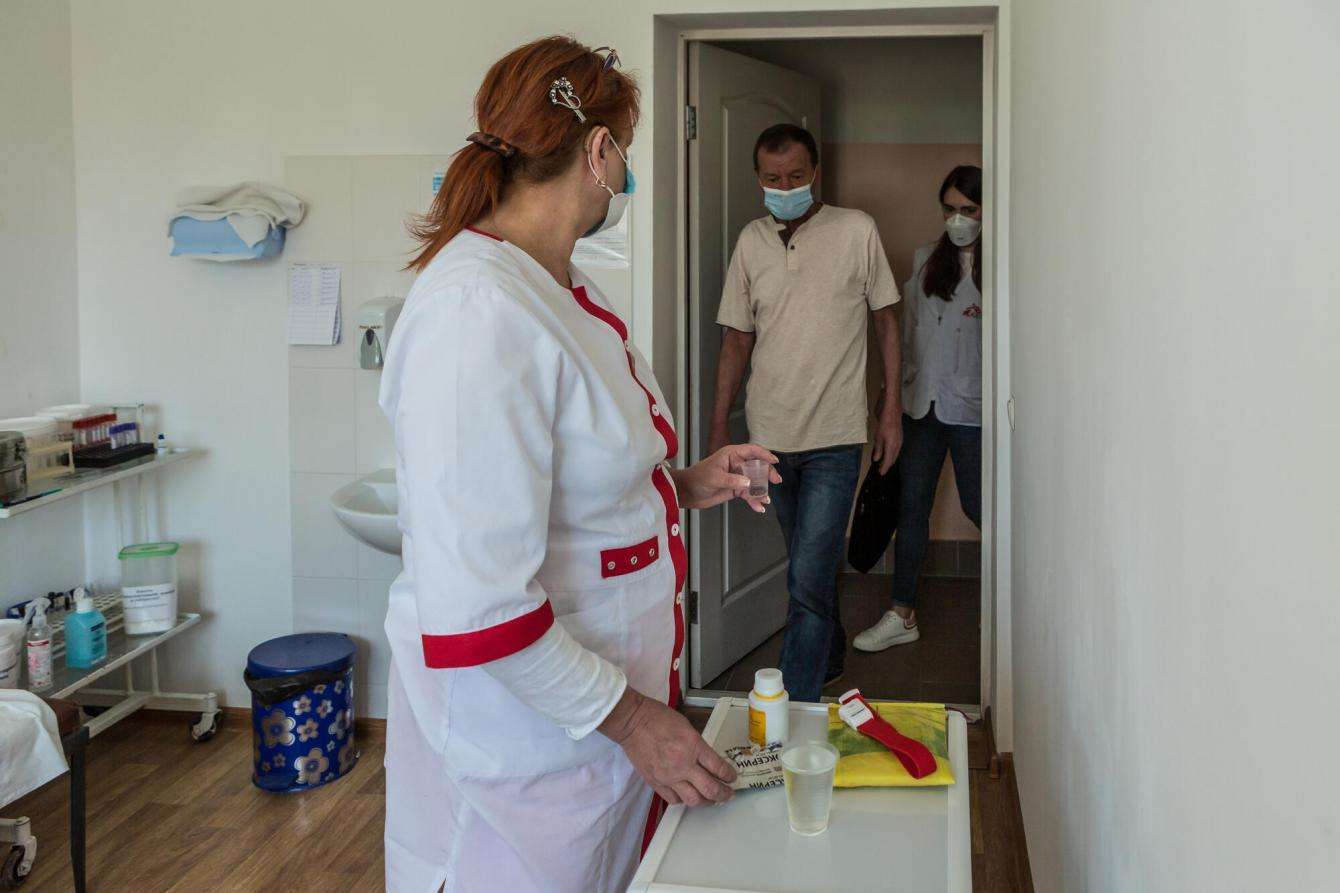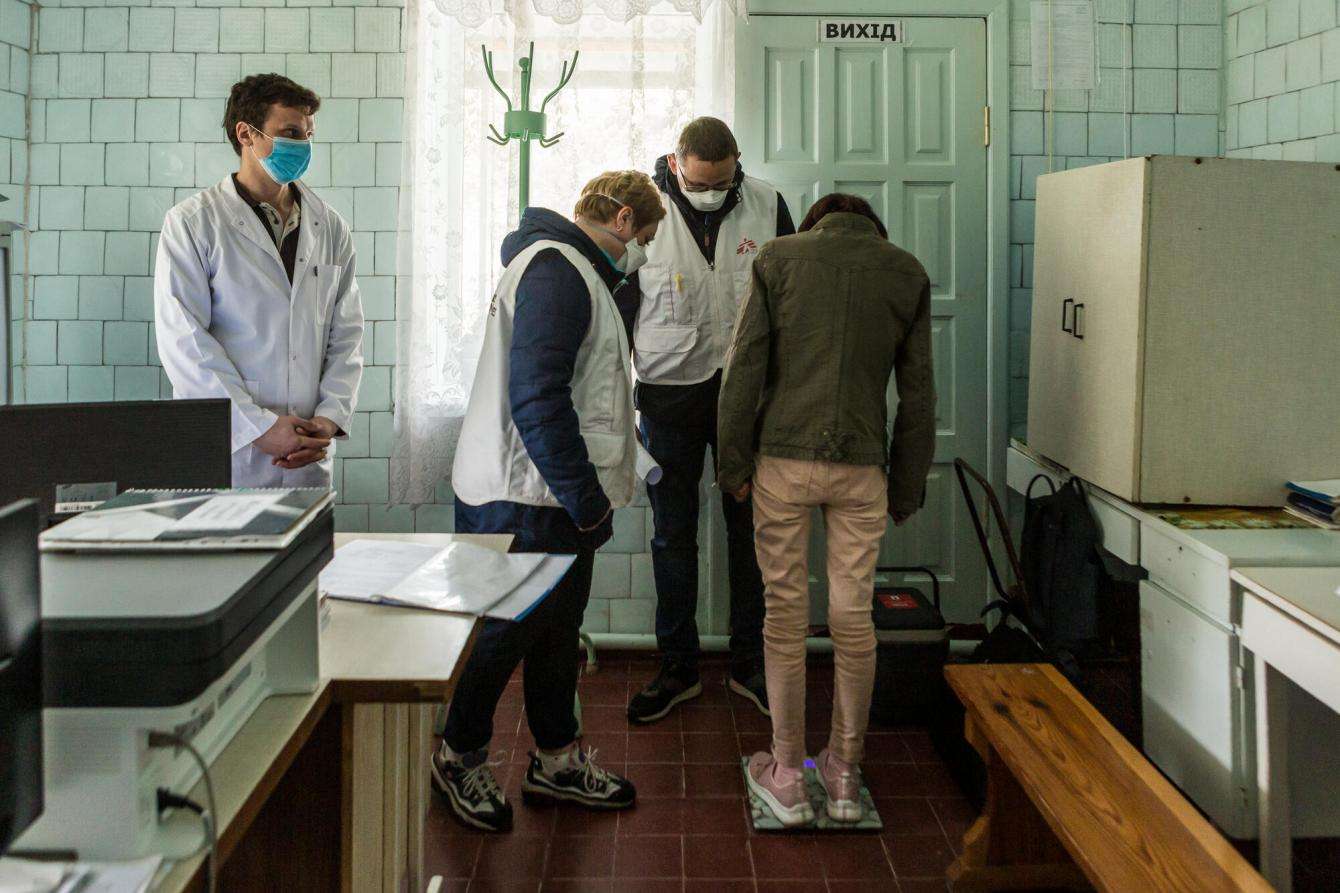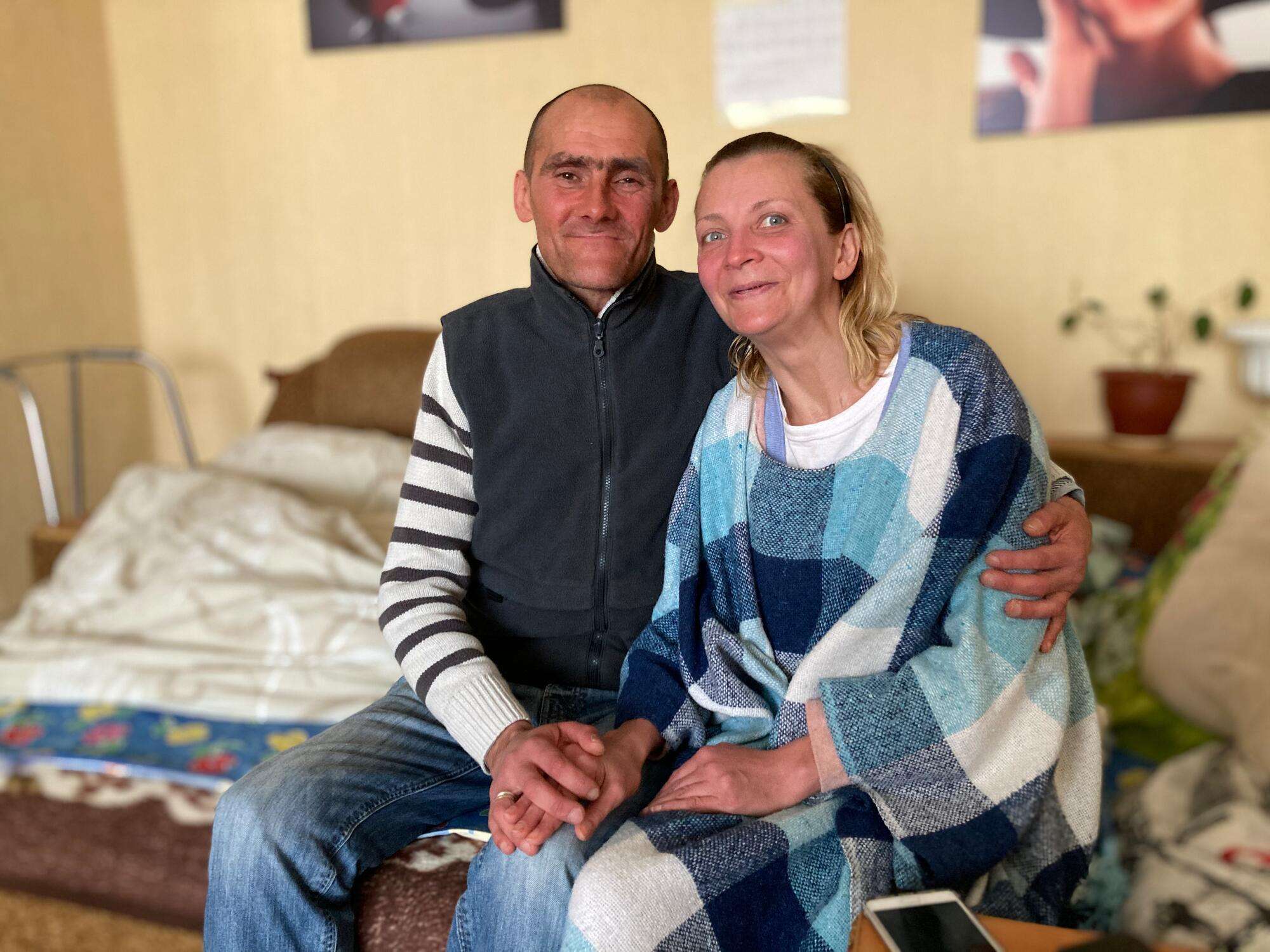During an early morning trip to the community kitchen last year, groggy, 40-year-old Sergey met Natasha. Both were living at the Zhytomyr regional tuberculosis treatment center, about 85 miles west of Kyiv, Ukraine, and participating in a program for patients with multi-drug resistant TB (MDR-TB). The program is a collaboration between the center and Doctors Without Borders/Médecins Sans Frontières (MSF).
In 2001, Sergey was suffering from pneumonia and sepsis in his lungs. “I was diagnosed with TB. What made it more difficult was that I was also addicted to drugs,” Sergey said. “Things were tough. I was in and out of prison, my wife had died from TB and alcohol addiction, and I had lost custody of my son.”
In 2020, an encounter with an MSF health worker convinced Sergey to check himself into the Zhytomyr facility for treatment, a decision that changed the course of his life—and Natasha’s.
In 2007, Natasha tested positive for HIV, and fell ill with pneumonia that was misdiagnosed as an infection. She had a history of substance addiction and had lost custody of her two children. Despite receiving treatment, she was diagnosed with TB, including drug-resistant strains, three more times over the next 13 years.
While TB treatment policies are modernizing in Ukraine, patients often still have to spend 12 to 24 months in dedicated TB health facilities. Existing treatment for drug-resistant forms of TB can be grueling, as it sometimes requires painful daily injections and combinations of drugs that can result in moderate to severe side effects, including fatigue or neurological symptoms.
TB survivors like Sergey, former prisoners with a history of substance addiction, don’t have much of a social or economic safety net in Ukraine, and as a result are often not able to start or complete hospital-centered TB treatments. The long hospital stay associated with treatment can contribute to a vicious cycle in which people struggling with addiction face an increasingly difficult series of obstacles to maintain their health. People can lose their families, homes, and income, all while fighting a potentially fatal illness.
“The drugs impacted my hearing and eyesight, I lost my appetite and consequently a lot of weight,” said Sergey. “I used to wake up at 5:00 or 6:00 in the morning due to stomach cramps and I would cry at the sight of those pills. It was really difficult.”
Incomplete TB treatment poses a serious risk, as it is linked to the emergence of drug-resistant forms of the disease. According to the World Health Organization in 2018, DR-TB patients represented 29 percent of new TB cases in Ukraine, and 46 percent of cases were previously treated TB patients. This rate is high compared to other countries in Europe and poses a significant public health challenge.
The program in Zhytomyr aims to reverse this trend through an operational research program supported by MSF. The study advocates for a patient-centered model, showcasing the numerous advantages offered by shorter treatment plans that last nine to 12 months and use highly effective, orally administered drugs including bedaquiline and delamanid, which cause fewer severe side effects than older drugs. Many patients in this program also receive treatment for comorbidities like hepatitis C, HIV, and substance addiction.

Treatment is tailored to each individual, and the ability to return home and continue taking medication increases the chance of patients completing their prescribed drug regimens. MSF’s patient support teams, comprising nurses, social workers, and psychologists, work with DR-TB patients to understand and resolve potential barriers to continuing treatment, ranging from unpaid pensions to lack of gas or heating in homes.
“When I entered the MSF program in Zhytomyr, I was struggling,” said Sergey. “I was craving drugs all the time but I also wanted to get my life back: Get a job; apply for disability status so my medical expenses could be covered. As part of my treatment here, I also started methadone [treatment]. But when I met Natasha, that’s when I felt God freed me.”
“I want to tell my story because I am alive,” Natasha said. “TB patients are lost to society. People around us don’t understand. We are told we won’t find a job. I want to tell health authorities to ensure nutritious food, health care workers to treat us well, social workers to listen to the needs of patients.”

Natasha and Sergey left the Zhytomyr facility in October 2020, two months after they first felt a spark at the shared refrigerator. They were married in December, and completed their TB treatment in January 2021. Today, they dream of building a house with a small garden and buying a car to travel the world.
“In 2007, I was diagnosed with TB and HIV and I thought I was going to die,” Sergey said. “Then I saw a poster of a child under a sunflower which said ‘life goes on.’ That gave me hope. Today, I am alive.”

